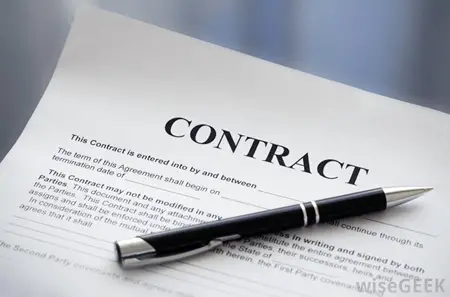 Government contracts represent more than $100 billion in potential revenue for small businesses. Government agencies are required to award at least 23 percent of their contracts to small businesses, meaning there is significant potential for your business to get in on a potentially lucrative income stream.
Government contracts represent more than $100 billion in potential revenue for small businesses. Government agencies are required to award at least 23 percent of their contracts to small businesses, meaning there is significant potential for your business to get in on a potentially lucrative income stream.
The catch? It’s not easy to score these coveted contracts. As you might imagine, there is significant red tape involved in applying for them, and the process is daunting to many business owners. Still, if you have the wherewithal, and you plan in advance — and follow these tips — you have a better chance of scoring some work for the government.
1. Secure Necessary IT Certifications
According to Department of Defense Directive 8570, any government contractor that will have access to federal computer networks must hold at least one of a list of specific security certifications. Among the approved certifications are the CompTIA A+, Security +, and Network +, as well as the CISSP and a variety of Microsoft certifications.
While these certifications are not mandatory if the contracts you’re seeking do not require access to federal networks, they can still help get your bids approved. Investing in IT professional training courses for your employees to help them earn these credentials can significantly improve your government contract bidding efforts.
2. Seek Socio-Economic Certifications
Federal, state, and local governments offer certifications for businesses that are owned and operated by individuals who meet certain socio-economic qualifications. If you are a woman, minority, disabled, a veteran, or economically disadvantaged, you may qualify for certain business designations that can open doors to specific government contracts. The law requires that a certain percentage of contracts must be awarded to companies that meet these designations, and certified businesses that apply for contracts will receive social treatment during the bid review process. If you qualify, getting the certification can help level the playing field and give you a better chance at landing a contract.
3. Find a Government Mentor
The process of securing government contracts is complex, and can be overwhelming to a small business that isn’t familiar with all of the ins and outs. Working with an experienced mentor who has knowledge and insight into the process can make a big difference. The government has two programs designed to help small businesses navigate the government contracting process: The GSA Mentor-Protégé Program pairs qualifying small businesses with larger firms, which offer experience and knowledge to newer businesses. The SBA Mentor-Protégé Program pairs businesses that qualify for the organization’s 8(a) with other businesses that have successfully secured government contracts to help them through the process. Regardless of where you find a mentor, working with an experienced company can help keep you from spinning your wheels.
4. Do Your Homework
The process of applying for government contracts is not easy, and many companies become frustrated or overwhelmed by the process and give up. Before you get started, do your homework about the process and what it takes to submit bids. The SBA offers an introductory course that explains the process, as well as other on-demand courses that cover specific topics, such as how to prepare applications. Seeking these contracts isn’t something that you can do on a whim or expect to complete in a few minutes, so do some research so you know what you’re getting into ahead of time.
5. Seek the Right Contracts
The federal government generally has tens of thousands of contracting opportunities available at any time. It’s easy to get bogged down searching for all of the opportunities, but you can save time and effort by knowing exactly what your company has to offer and what advantages you have over other companies. This can help narrow down the potential opportunities and allow you to focus on those that are most appropriate. Doing all of your homework in advance will identify any potential pitfalls early on, so you don’t waste time applying for opportunities that aren’t right for your company.
6. Get Organized.
Bidding on government contracts involves paperwork — a lot of paperwork. Before you dive in, get organized and develop a system for keeping track of your applications and required documents. Keep track of deadlines, make sure you are registered in the appropriate places, and stay on top of developments to prevent a simple clerical error or missed deadline from knocking you out of the running.
Again, government contracting is not a simple process, but it can be a major boost for your business. Learn the process, follow the guidelines, and be patient, and you can claim your piece of the pie.
[Image via Google Images]
